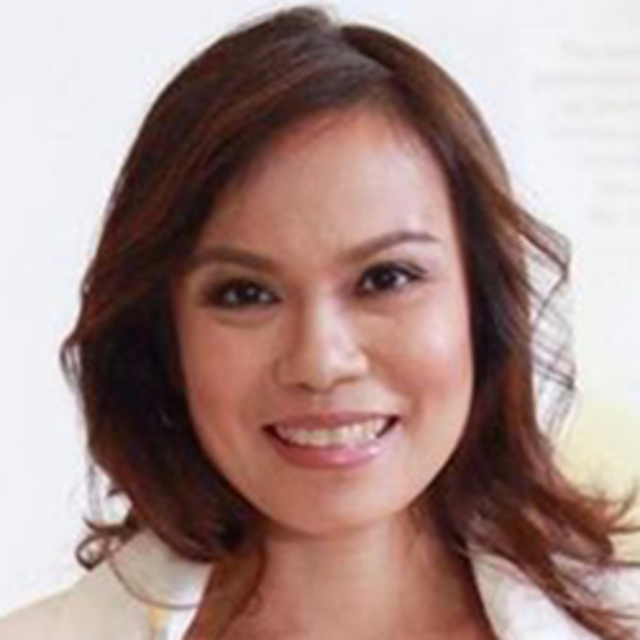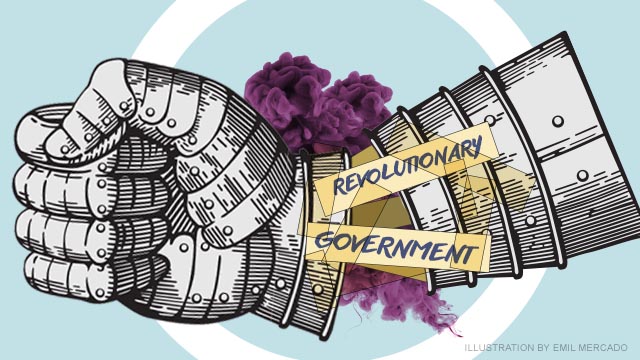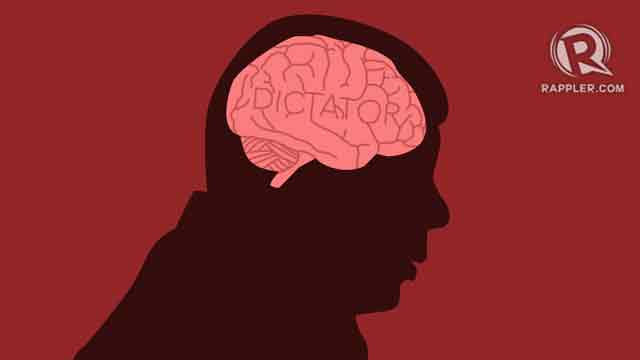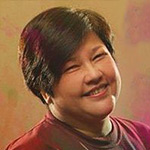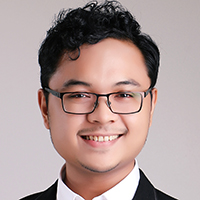
In the recent ASEAN Business and Investment Summit, “ports king” and third-richest Filipino Enrique Razon Jr made a bold and controversial claim:
“Countries with the most advanced infrastructure are the ones that are not democratic. The countries with the best infrastructure in the world are dictatorships…This is a fact.”
He added, “Tying democracy to development, I don’t think it really works.” This was met by laughter and applause from the audience.
Mr Razon’s statements touch on deep issues that have been the subject of many studies in economics and political science over the years.
In this article we use data and previous studies to show that Mr Razon’s claims about the economic effects of democracy are simplistic, inaccurate, and insensitive. In fact, they may even be considered a dangerous act of historical revisionism.
Infrastructure and democracy
Do non-democracies really have more and better infrastructure?
After all, without the usual checks and balances found in democratic regimes, authoritarian leaders could simply decree the construction of modern and ambitious infrastructure projects – in much the same way as President Marcos did in the 1970s.
The box plot in Figure 1 shows the range of infrastructure quality across different types of political regimes as of 2016.
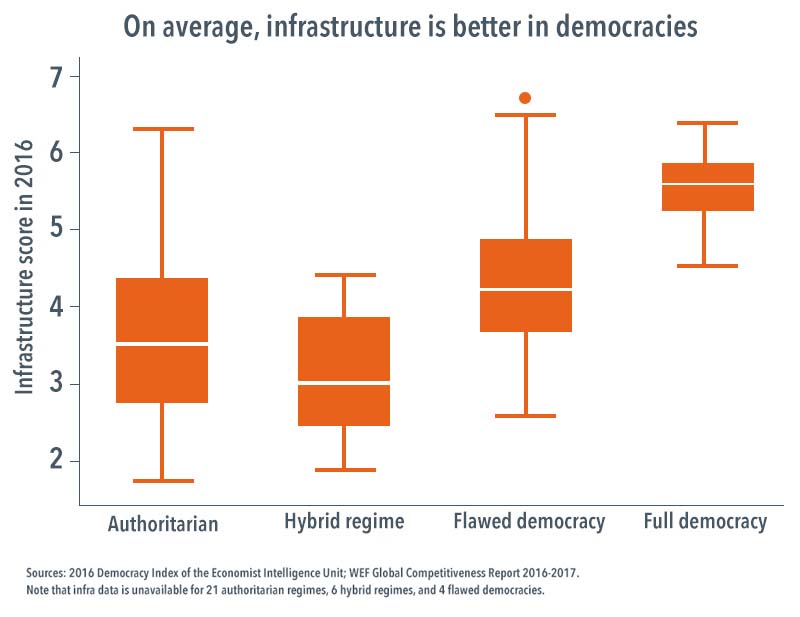
Figure 1. Note: Data include 136 countries. The white line in each box signifies the median value; the bottom and top edges of each box refer to the 1st and 3rd quartiles; the bottom and top lines refer to the minimum and maximum values; a dot represents an outlier (the sole outlier here is Hong Kong).
The data on infrastructure scores come from the Global Competitiveness Report 2016-2017. Each country’s score aggregates the quality of its roads, railroads, ports, air transport, electricity supply, etc.
Meanwhile, the data on political regimes come from the Economist Intelligence Unit’s Democracy Index 2016. Each country is scored from 0 to 10 based on a number of criteria – including its electoral process and pluralism, degree of political participation, democratic political culture, and respect for civil liberties – and is then classified as follows:

What does Figure 1 show? First, the white line in each box indicates that the median infrastructure quality scores in democracies (whether full or flawed) are higher than in hybrid and authoritarian regimes.
Second, while infrastructure quality varies widely in authoritarian regimes – ranging from very high to very low – it tends to be consistently very high in full democracies.
This reflects the fact that while some authoritarian regimes have state-of-the-art infrastructure (like the driverless trains in Dubai in the UAE or the spanking new cities of China) some also have poor or non-existent infrastructure (like the unpaved runways of Burundi or the dilapidated road network of the Congo).
In authoritarian regimes, infrastructure projects are subject to large commissions, bribes, and kickbacks, and this often compromises their quantity and quality.
During the Marcos regime, for example, Herminio Disini – an Ilocano businessman and husband to Imelda’s first cousin – received at least $50 million in commissions from the contractor (Westinghouse) for helping seal the deal on the Bataan Nuclear Power Plant. Records show that, from 1976 to 1982, Marcos himself received $11.2 million from the project, which produced not a single kilowatt of energy to this day.
Note that Figure 1 excludes major authoritarian states – like North Korea, Syria, and the Central African Republic – from which infrastructure data are simply non-existent or impossible to collect. If you include them, the median infrastructure score in authoritarian regimes will likely go down further.
Hence, when it comes to infrastructure, being in an authoritarian regime is a mixed bag. Mr Razon’s statement gives too much credit to authoritarian regimes and grossly ignores their bad track record in providing quality infrastructure especially in the poorest parts of the world.
Development and democracy
But the greater issue here is whether democracy – with its insistence on transparency and accountability – could actually be a constraint to overall economic growth and development. Some non-democracies like China and Viet Nam, for example, have had great successes in reducing poverty and increasing their people’s incomes in recent decades.
It so happens that economists and political scientists have long studied the same question. One of the latest studies of note – a 2015 paper by economists from MIT, Harvard, and Columbia – is simply entitled, “Democracy does cause growth.”
By exploring global data on “democratizations” – transitions from non-democratic to democratic regimes – from 1960 to 2010, they found that such events increase income per capita by 20% on average 25 years later.
This holds true even if one accounts for other potential factors, such as the fall of communism in the late 1980s, the political unrest that typically precedes democratizations, and the inflows of foreign aid that follow it.
The researchers further investigated the specific mechanisms by which democracy causes growth. They found that democratization tends to encourage private sector investments, increase spending on education and health, improve the provision of public goods, and reduce social unrest.
All in all, the authors found “little support for the view that democracy is a constraint on economic growth for less developed countries.” Democracy and development are not only correlated with one another: the former actually causes the latter.
Let’s not sugarcoat dictatorship
The election of President Duterte, alongside other populist leaders abroad, seems to be part of a growing frustration with liberal democracy worldwide.
Indeed, the way many Filipinos are acquiescing to the Duterte government’s questionable policies – like the trampling on basic human rights, the intimidation of media outlets, and the attempt to impeach Chief Justice Sereno – we might already be descending back into some sort of hybrid or authoritarian regime.
But contrary to what some businessmen might claim, democracy is not a constraint to development. In fact, the data show that transitioning to a democracy is associated with long-term improvements in people’s welfare.
We should know this from experience. Our great experiment with authoritarianism during the Marcos regime culminated in the country’s deepest postwar recession in 1984 to 1985. The democratization that EDSA marked put us back on the right track. (READ: Were it not for Marcos, Filipinos today would have been richer)
Sugarcoating dictatorship with its supposed economic benefits is therefore a dangerous act of historical revisionism, especially now that President Duterte is seriously flirting with the idea of starting a “RevGov” or revolutionary government.
Such remarks betray not only one’s ignorance of the existing data, but also a lack of appreciation for the country’s history. At worst, it displays an aloofness to the plight of the ordinary Filipino. – Rappler.com
The author is a PhD candidate and teaching fellow at the UP School of Economics. His views are independent of the views of his affiliations. Follow JC on Twitter: @jcpunongbayan.

 When we reach the age of 50 – that’s half a century old – we tend to ask ourselves profound meaning-of-life questions. So should organizations like ASEAN.
When we reach the age of 50 – that’s half a century old – we tend to ask ourselves profound meaning-of-life questions. So should organizations like ASEAN.
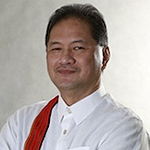


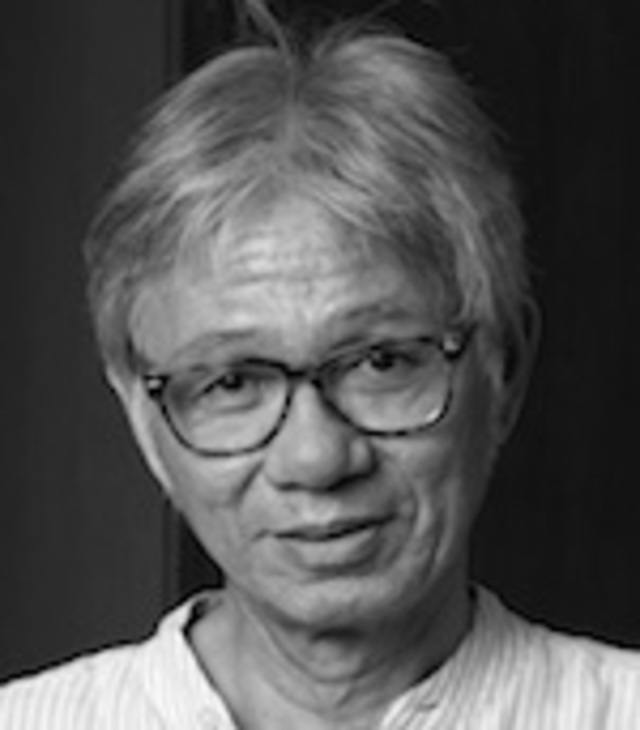

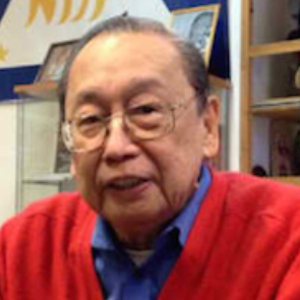


 A symbol of the times confronts LRT riders who look right as they pass by Vito Cruz station: a black banner with the words “Stop the Killings. Start the Healing” hung on the Corinthian columns of architect Tomas Mapua’s St La Salle Hall.
A symbol of the times confronts LRT riders who look right as they pass by Vito Cruz station: a black banner with the words “Stop the Killings. Start the Healing” hung on the Corinthian columns of architect Tomas Mapua’s St La Salle Hall.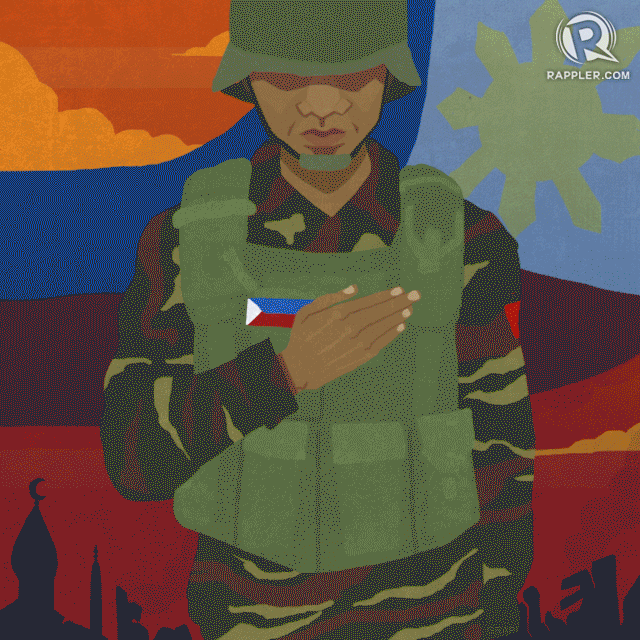
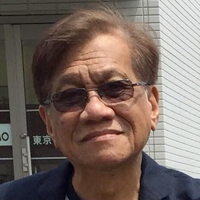 In a recent speech in Taguig City, President Duterte made a plea for someone to kill him so he could be enshrined in the country’s pantheon of national heroes. This is the man’s most recent public request for assisted suicide or euthanasia so he can join the immortals.
In a recent speech in Taguig City, President Duterte made a plea for someone to kill him so he could be enshrined in the country’s pantheon of national heroes. This is the man’s most recent public request for assisted suicide or euthanasia so he can join the immortals.
